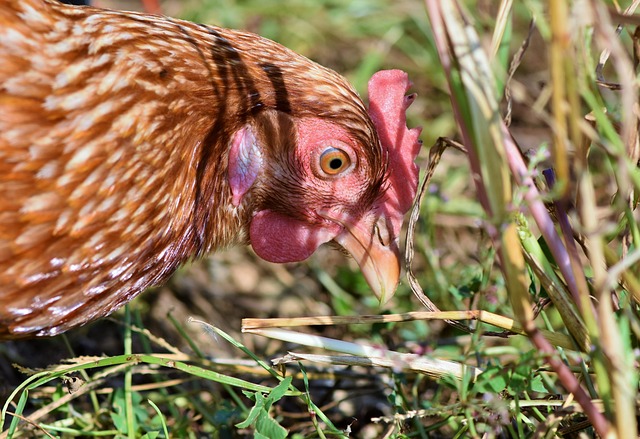
Image by Ralph from Pixabay
Experts are warning about alarming bird flu mutations that may lead to increased human adaptation. Learn about the growing risks, potential spread, and precautions to take amid these developments.
Introduction: Understanding Bird Flu Mutations-a Growing Threat
Over the last couple of months, some alarming mutations of the bird flu virus H5N1 have raised red flags among experts. Some even go as far as to suggest these changes are contributing to a disturbing trend-the growing adaptability of the virus in humans. Traditionally, bird flu, or avian influenza, has been primarily a concern for birds. But the increasing number of human cases in some areas has raised the stakes for a far more ominous pandemic. As these viruses continue their evolution, the risks increase. Scientists, health officials, and the general public should prepare for possible outcomes related to this emerging health concern.
What are Bird Flu Mutations?
Bird flu mutations are changes in the genetics of the virus responsible for avian influenza, which enable it to adapt to an infected organism and possibly infect humans. Commonly, bird flu affects only birds, especially poultry, but over time, mutation can enable the virus to cross over to other species. This becomes particularly concerning if the virus can gain the characteristic of easy spreading from man to man; it may then cause a global breakout with disastrous results.
Of these, perhaps the most worrisome is a set of mutations that seem to enhance the binding of this virus to human respiratory cells, thereby making it much more contagious. As experts explain, the evolving nature of the virus calls for vigilance and swift reaction.
The Growing Human Adaptation: Experts Warn
Dr. Sarah Thompson, the leading expert in virology, gave a striking warning against the increasing capability of bird flu adaptation to human hosts. She said that according to the mutations in the recent outbreaks, the virus has indeed gotten closely capable of infecting humans. Dr. Thompson said that great events of bird flu human-to-human transmission are yet to be confirmed, but this could be a precursor with all these ongoing mutations.
Bird flu’s ability to mutate and adapt to new hosts is nothing new,” says Dr. Thompson. “But these recent mutations really suggest a shift toward human adaptation that warrants serious attention. We have to stay vigilant, be ready for whatever’s next.”
How Bird Flu Mutations Could Affect Humans
The threat to human health from the mutations of bird flu lies in the acquiring by the virus of the potential of easy spread among people. In the recent outbreaks of the virus, scattered cases of human infection have been reported, most of which have been attributed to close contact with infected birds. If the virus mutates to allow for sustained human-to-human transmission, the situation could escalate quickly.
If a mutation enabled the virus to break this cyclic animal-to-human barrier, it then assumed the proportion of a global public health crisis. What experts especially fear is that all this would make containment more difficult, should the virus increase in virulence or resistance to current available antiviral treatments. This is especially disquieting while flu vaccines are ineffective against bird flu, and antiviral therapies such as Tamiflu may turn out to be useless against new strains.
Key Drivers of Change in Bird Flu
There are a number of key factors driving the growing concern over mutations in bird flu, including:
Global Spread of Infected Birds: Migratory birds continue to spread avian influenza across borders, making tracking and controlling outbreaks much more difficult as the populations of birds fly between countries and continents.
Increased human-animal contact: With the rise in industrial farming, man and poultry and wild birds interact more frequently, increasing the chances of cross-species transmission.
Climate Change: Such changes in climate change impel birds to immigrate to some other place or alter their natural habitat, which results in new mutations in viruses that will continue to threaten human health.
The Risk of a Future Pandemic: Is Humanity Prepared?
For a long time, experts have been warning against the possibility of bird flu turning into a pandemic. In 2005, H5N1 had alarmed the WHO because it caused human deaths in the Asian region. Since then, efforts against widespread infection have become more aggressive. However, in view of the recent mutations observed in some strains of bird flu, the problem again gained center-stage in public health discussions.
While so far the mutations of the virus have been contained, the situation remains fluid. The risk for human adaptation keeps rising, and some health officials raise their concern that preparedness and preventive measures around the world need to be improved. This means governments working in concert with healthcare providers and scientific communities take a proactive approach to what the virus will do next.
Positive Sentiment: Prevention and Vigilance Can Mitigate Risks
While this is a threat that continues to grow, according to expert opinion, positive steps can be taken to minimize the impact of a possible outbreak of bird flu. For that, early detection and constant watch must be carried out globally along with surveillance in order to prevent the spread of any new strain of flu. Besides, the research on better vaccines and antiviral drugs is still ongoing, bringing optimism for the better management of future outbreaks.
“The fact that we have surveillance systems and global health infrastructures in place is a reason for optimism,” Dr. Thompson adds. “The better prepared we are, the better the chance to avoid the most serious outcomes.”
Negative Sentiment: The Growing Menace of Mutation Cannot Be Overlooked
While many precautionary measures are taken, it is still a reality that bird flu mutations may still have disastrous impacts. In case the virus further adapts to a position of human-to-human transmission, then the existing method of control cannot help in halting a rapid spread. Experts urge governments to remain cautious and continue with preparation for the worst-case scenario when a full-scale pandemic could emerge.
Conclusion: Being Prepared amid Bird Flu Mutations
While bird flu mutations continue to raise alarms, the big question has always been: the eventuality of a mutation that will eventually adapt the virus to human hosts. With so many things unclear, there is one thing experts can agree on: increased vigilance and preparedness are key in guarding global health. Monitoring these kinds of mutations and prompt responses to outbreaks would lessen the risk from this ever-evolving virus.
If people can keep themselves informed and take necessary precautions, it would mean that mankind has again outsmarted the bug and managed to avoid one more pandemic. For the time being, experts emphasize that continued monitoring and international cooperation are needed in trying to prevent bird flu mutations from getting out of control.
Must read: 79000 Pounds of Costco Butter for Missing Milk Allergy






